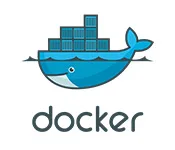I have an Spring boot java application that uses Keycloak for authentication and authorization.
I have created my realm and its users and roles. I want to dockerize the application using docker compose. So I have crated a docker image of my java application.
But when I want to create a Keycloak instance(pulling Keyckloak image from dockerhub), I will lose my persisted realms, users and roles which I had created before because it creates a new Keycloak from the pulled docker image. How to keep this data persisted, every time I run the application using docker compose?
Actually I need the Keycloak data(realms, users and roles) to be initialized automatically whenever I run docker compose.
Update:
Let me make the problem clearer.
I want to put the codes on Github and when somebody gets and runs it (thorough docker compose); by predefined keycloak users and passwords, use the application. The problem is that, when somebody each time runs the code by docker compose, there is no realm, users and roles because the Keycloak image is pulled and runs without any data(realms, user and so on). Actually I do not want the users who run the application, define the Keycloak data(realm, user and so on). I want this data already be exist on each application running so the users can login to my application and use it.
application.yml:
spring:
application:
name: my-client
security:
oauth2:
client:
registration:
myclientapp:
client-id: my-client-app
client-secret: secrectKey12345
scope: openid, profile, roles
authorization-grant-type: authorization_code
redirect-uri: http://localhost:8085/login/oauth2/code/myclientapp
provider:
myclientapp:
authorization-uri: http://localhost:8080/realms/myclientapp/protocol/openid-connect/auth
token-uri: http://localhost:8080/realms/myclientapp/protocol/openid-connect/token
jwk-set-uri: http://localhost:8080/realms/myclientapp/protocol/openid-connect/certs
user-info-uri: http://localhost:8080/realms/myclientapp/protocol/openid-connect/userinfo
user-name-attribute: preferred_username
pox.xml file:
<?xml version="1.0" encoding="UTF-8"?>
<project xmlns="http://maven.apache.org/POM/4.0.0" xmlns:xsi="http://www.w3.org/2001/XMLSchema-instance"
xsi:schemaLocation="http://maven.apache.org/POM/4.0.0 https://maven.apache.org/xsd/maven-4.0.0.xsd">
<modelVersion>4.0.0</modelVersion>
<parent>
<groupId>org.springframework.boot</groupId>
<artifactId>spring-boot-starter-parent</artifactId>
<version>3.2.5</version>
<relativePath/> <!-- lookup parent from repository -->
</parent>
<groupId>com.my-client</groupId>
<artifactId>client</artifactId>
<version>0.0.1-SNAPSHOT</version>
<name>client</name>
<description>Demo project for Spring Client</description>
<properties>
<java.version>17</java.version>
</properties>
<dependencies>
<dependency>
<groupId>org.springframework.boot</groupId>
<artifactId>spring-boot-starter-thymeleaf</artifactId>
</dependency>
<dependency>
<groupId>org.springframework.boot</groupId>
<artifactId>spring-boot-starter-web</artifactId>
</dependency>
<dependency>
<groupId>org.springframework.boot</groupId>
<artifactId>spring-boot-starter-oauth2-client</artifactId>
</dependency>
<dependency>
<groupId>org.springframework.boot</groupId>
<artifactId>spring-boot-starter-validation</artifactId>
</dependency>
<dependency>
<groupId>org.springframework.boot</groupId>
<artifactId>spring-boot-devtools</artifactId>
<scope>runtime</scope>
<optional>true</optional>
</dependency>
<dependency>
<groupId>org.projectlombok</groupId>
<artifactId>lombok</artifactId>
<optional>true</optional>
</dependency>
<dependency>
<groupId>org.springframework.boot</groupId>
<artifactId>spring-boot-starter-test</artifactId>
<scope>test</scope>
</dependency>
</dependencies>
<build>
<plugins>
<plugin>
<groupId>org.springframework.boot</groupId>
<artifactId>spring-boot-maven-plugin</artifactId>
<configuration>
<excludes>
<exclude>
<groupId>org.projectlombok</groupId>
<artifactId>lombok</artifactId>
</exclude>
</excludes>
</configuration>
</plugin>
</plugins>
</build>
</project>
Thanks a lot.

 Question posted in
Question posted in 

2
Answers
Short answer
Export your Keycloak realm and users and add it to the container
/opt/keycloak/data/import/folder.Step by step
Once your realm clients and users are configured with Keycloak admin UI, in Docker desktop:
Exectab to run:Filestab and grab the export file for the realm you want to restore in/tmp/keycloak/(here after I store it in the./keycloak/import/directory, relative to the Docker compose file, but could have chosen./keycloak/data/import/to keep the same directory structure as Keycloak install in the container)volumeto mount at/opt/keycloak/data/import/the directory where you saved the file exported from Keycloak. In my case:Sample complete projects doing that:
I think, if we configure our database, they should be persisted.